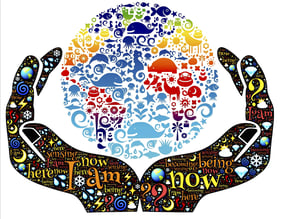After attending Stanford University, and working in finance I decided to get my MBA so I could move into marketing, because that felt more like me. I enjoyed marketing more than finance, but I especially enjoyed mentoring and coaching people and helping them to manage through challenging, high conflict situations, like some of what you find in franchise organizations. I also discovered a passion for innovating and facilitating change. With a deep drive to create better outcomes for organizations, and the people in them, I innovated ways to successfully implement large-scale projects that optimized successful adoption of these programs.
Sadly, at the time, there was an old-school definition of leadership in several of the places I worked. When I collaborated with stakeholders, I was scolded for “compromising”, which to me was actually partnering in order to search for best outcomes. I was told never to admit that I made a mistake, even when I did. That felt wrong to me. I wanted to take accountability for my projects, and to lead with transparency. How could anyone trust me if I shirked off the truth and blamed someone else? 
And yet, these were the lessons being offered to me. When I didn’t do them, I was called a “Pollyanna.” I continued to go against the grain and to follow my intuition. I collaborated, I listened, I told the truth, and I offered transparency. And amazingly enough, my projects were very successful. In other words, they were well executed and got great results. People trusted me, called me a straight shooter and believed I had their best interests at heart. But along the way, there was a price to pay. Supervisors criticized me, until my results proved that my approach was working. Sadly, the situation caused me to second-guess myself. Here were my bosses telling me that I was doing it all wrong, that I was weak. There was a part of me that believed them. But the whispering of my soul was too strong. I had to do it my way. And luckily it worked. Even better, many companies today are embracing a more authentic approach to leadership, encouraging engagement with employees and stakeholders with "power with” versus "power over. "
Experiencing and overcoming my own struggles in work and life led me to want to support others as a coach. Helping others to navigate their work and personal lives has become my passion: empowering people to align with their soul so that their journey can be authentic and sweet. Sometimes we need support to know that we are okay, that our perspective matters and that we are not wrong, or flawed. That is now my work: to help people hear the whisper of their souls so their life and their work can be as it was intended: happier, more meaningful and satisfying.

 “If you were sure you would succeed, what would you do in your life?” is a question that almost always provokes a very clear and meaningful answer from coaching clients who say they feel stuck and they aren’t sure what they want.
“If you were sure you would succeed, what would you do in your life?” is a question that almost always provokes a very clear and meaningful answer from coaching clients who say they feel stuck and they aren’t sure what they want. and stones may break my bones, but words can never hurt me,” is dead wrong. Words have power. They affect us to our core. Consider the power of “I’m sorry,” and “I love you,” or “You’re a screw-up.” Think about the power of a parent who says to the child, “I believe in you.” Also, consider the impact on the child who never hears those words from a caring adult.
and stones may break my bones, but words can never hurt me,” is dead wrong. Words have power. They affect us to our core. Consider the power of “I’m sorry,” and “I love you,” or “You’re a screw-up.” Think about the power of a parent who says to the child, “I believe in you.” Also, consider the impact on the child who never hears those words from a caring adult.